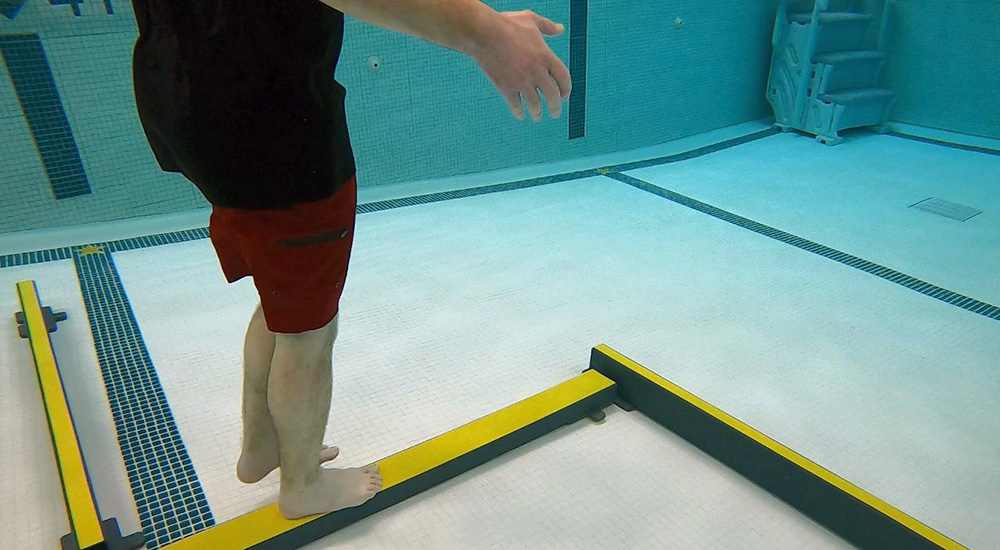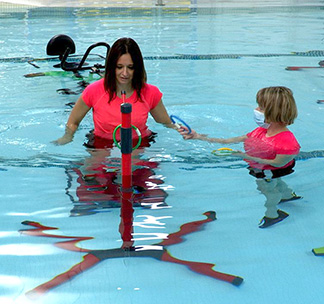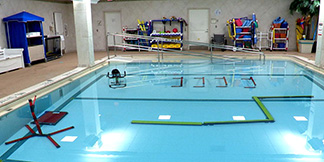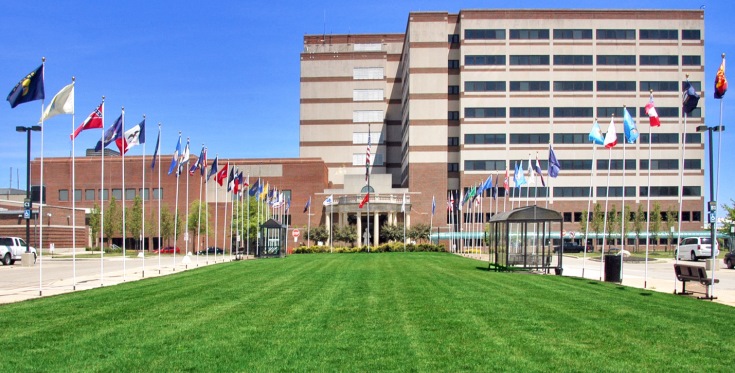Marine Veteran Glenn Grier broke his leg in 2020 and still has pain and lack of movement.
Cleveland VA’s Recreation Therapy Aquatic department is helping him with a new aquatic obstacle course, pictured above.
The aquatic treatment helps Veterans improve their balance. The goals are to increase stability and strength to decrease fall risks. Falls prevention is an important aspect in treatment in an effort to avoid injuries, increase functional activity level and increase personal confidence with movement.
“It helps my walking and moving,” Grier said, about the aquatic therapy.
The obstacle course is from EWAC Medical, from the Netherlands. It includes a wiggle board, adjustable reaching pole, and four balance beams of varying widths that can be arranged in different ways: straight line, box shape or zigzag, and four hurdles of varying height.
Buoyancy helps Veterans correct unsteadiness
The obstacle course components can be used as separate entities or as a full unit. As Veterans navigate the various equipment, they challenge their gait patterns, leg strength and coordination.
The buoyancy of the water provides increased stability and time for the Veteran to learn how to self-correct unsteadiness that is often the result of bedrest or prolonged inactivity because of an accident or injury.
Using the equipment in different depths of the pool further contributes to its versatility to meet the needs of Veterans with more minimal to severe deficits and allows a therapist to adjust the level of difficulty of a task as the Veteran progresses.
Maximizing functioning and quality of life
The new equipment will continue to allow the therapists at the Louis Stokes VA Medical Center to assist Veterans in maximizing individual functioning and improvement in quality of life.
The aquatic therapy staff, Jessica Bergin, Lynn Barninger and Mike Nielsen, work with Veterans of all ages and functional limitations. They are always striving to provide up to date treatment modalities and offer the highest level of care.
Another Veteran in the program says, “It has helped with my anxiety and calmed my mind.”
COVID-19 restrictions have limited use of the course for the time being.
February is International Recreational Therapy Month. Learn more about VA’s recreational therapy programs.
Topics in this story
More Stories
The Dayton VA Medical Center released its March 2025 Good News Report, spotlighting compassionate care, special recognitions, and life moments shared by Veterans and staff.
Each year, I return to honor my old corpsman's memory and reflect on serving together.
Veteran was trained to collaborate with fellow Airmen. Having his buddy’s six was important, and still is.








And just exactly what va is this happening at??? My va isn’t having any IN PERSON visits let alone any type of PT or recreational therapy. Why do you people keep insisting on lying like this?